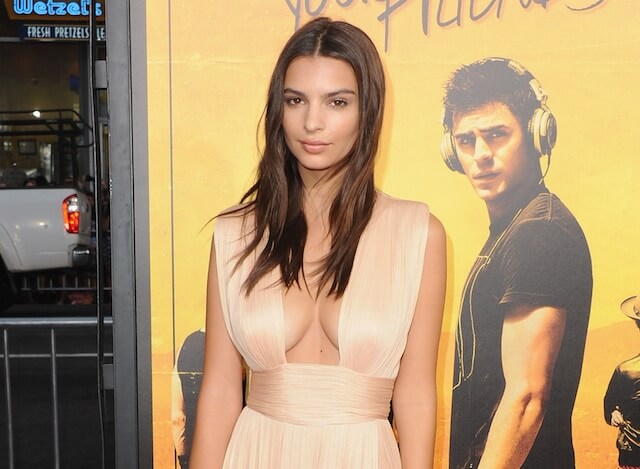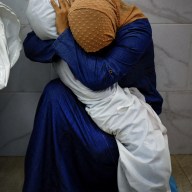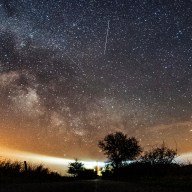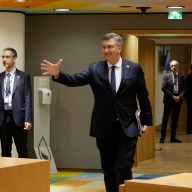Emily Ratajkowski knows who classic French filmmaker Robert Bresson is. That shouldn’t be shocking. Her mother is an academic and her father is an artist. But we’ve been conditioned to think models aren’t cultured, just as we’ve been conditioned to think models aren’t actors. Ratajkowski is all three. Her big acting break, after her bit in the “Blurred Lines” video, was no less than a David Fincher film, as Andie, the student sleeping with Ben Affleck’s Nick, in “Gone Girl.” She’s since played herself in the “Entourage” movie, and she’s now in “We Are Your Friends,” as the personal assistant/girlfriend of a big time DJ (Wes Bentley) who catches the affections of his young mentee (Zac Efron). Traditionally there’s a stigma attached to models who transition into acting.
That happens a lot more to young women than it does to young men. There are far more stigmas attached to women who have been thought of as a sex symbol. That’s just silly.
A lot of time women’s sex appeal is usually filtered through the male gaze. You’ve spoken about how you want women to reclaim that sexuality and own it.
Even in “Gone Girl” and “We Are Your Friends,” you watch those characters at moments through the eyes of the male characters. I think there will be parts in the future where it’s just about the women and female journeys. That’s what I’m constantly struggling to find. That’s why I’m taking a slow road to which films I take. RELATED:Our review of David Fincher’s “Gone Girl,” featuring Emily Ratajkowski The actor’s dream is to be able to carefully curate their careers, create a body of work they’re proud of.
For me it’s a matter of being happy. It’s not about being career savvy. I had a conversation with David [Fincher] after I did “Gone Girl” where I said, “I don’t think I’m very good if I don’t care about [the material].” He was like, “Well, duh.” I was like, “Well, you’re David Fincher, so that’s easy for you to say.” But it’s something I’d like to keep in mind. You actually wanted to be an actor since you were a kid. In fact, you became a model so you could become an actor, correct?
Yeah, isn’t that funny? Not many people know that. I was one of those kids who tried everything, and theater was definitely something that stuck. I went to UCLA for visual art and thought about becoming an English professor or a writer. I’ve always been creatively inclined. My first love, though, was theater. What were some roles you were playing as a kid?
I was the Little Match Girl, which was my first lead in the sixth grade, which was a big deal for me. But I fell in love with acting by watching theater. I lived in London when I was five years old while my mom was teaching literature there. Her teaching was about how literature related to theater, so she got all these free tickets. We would go to London theater shows once a week instead of seeing movies. Are there any particular dream roles? I saw “The Glass Menagerie” recently and I thought I would love to play the daughter. And there are so many great Shakespearean female parts.
Given your parents’ professions, was it inevitable you’d fall into the arts?
I guess so. It drives me insane when people say, “Oh, I’ve been designing clothes” and someone says, “Great, but your father is Ralph Lauren,” and they say, “That just happens to be the situation.” Let’s be honest: we’re very impacted by what we’re surrounded by as a child. When you first started acting professionally, what kind of roles were you getting?
Because I was a model it was mostly the hot girl in high school or the cheerleader. They’re like, “Oh, she’s a model,” then you always get model parts. For me those parts weren’t exactly exciting. That’s why I stopped acting for awhile. I wasn’t interested in the Nickelodeon/Disney versions of women. A David Fincher film is a pretty good get for your first major film.
It was a good get, for sure. What was interesting about [Andie] in “Gone Girl,” in the book you read her from the perspective of Nick and Amy. She’s just his mistress. I tried to add something to that, that made her feel like something young women could relate to — that she had her own stuff. In “We Are Your Friends” I really think that Sophie has an interesting arc. She has a front that she puts out there, and a lot of people probably have ideas of who she is. I imagine her being very different in college, her going through different phases throughout her life. There are many versions of Sophie. I related to that. I liked that there was a young female character who embodied that. RELATED:Emily Ratajkowski on Hollywood, feminism and nudity So much press about Fincher is over the high number of takes he does. But actors — not all ofthem — seem to like it.
I thought it was amazing, not only because I’m a young actor and I wanted to spend as much as I could on set, but also because the technique he uses makes you stop thinking. That’s a great thing. Maybe it’s a rookie move, but I definitely think about the history of my character and where they’ve come from. That can get in the way of you living the scene. But he gives you so many notes and you do it so many times that you stop thinking. Overacting can happen and he erases that. The French filmmaker Robert Bresson used to do that with actors. He’d shoot them so many times that they’d become lifeless mannequins, only able to do blank movement. Not that Fincher goes to that extreme. Oh, I didn’t know [Bresson] did that. [Fincher] gets a bad rap for being a perfectionist and being obsessive, but it’s a great technique for getting the best performance.
I guess people just feel bad for the actors.
I mean, don’t feel bad for me.
Emily Ratajkowski isn’t interested in playing the hot girl

Getty Images
Follow Matt Prigge on Twitter @mattprigge


















